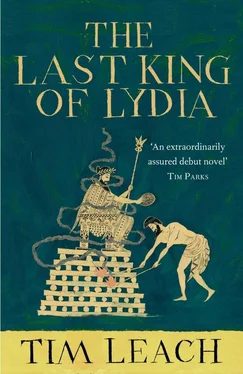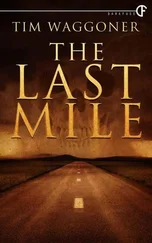Tim Leach - The Last King of Lydia
Здесь есть возможность читать онлайн «Tim Leach - The Last King of Lydia» весь текст электронной книги совершенно бесплатно (целиком полную версию без сокращений). В некоторых случаях можно слушать аудио, скачать через торрент в формате fb2 и присутствует краткое содержание. Год выпуска: 2013, ISBN: 2013, Издательство: Atlantic Books Ltd, Жанр: Исторические приключения, на английском языке. Описание произведения, (предисловие) а так же отзывы посетителей доступны на портале библиотеки ЛибКат.
- Название:The Last King of Lydia
- Автор:
- Издательство:Atlantic Books Ltd
- Жанр:
- Год:2013
- ISBN:9780857899200
- Рейтинг книги:5 / 5. Голосов: 1
-
Избранное:Добавить в избранное
- Отзывы:
-
Ваша оценка:
- 100
- 1
- 2
- 3
- 4
- 5
The Last King of Lydia: краткое содержание, описание и аннотация
Предлагаем к чтению аннотацию, описание, краткое содержание или предисловие (зависит от того, что написал сам автор книги «The Last King of Lydia»). Если вы не нашли необходимую информацию о книге — напишите в комментариях, мы постараемся отыскать её.
The Last King of Lydia — читать онлайн бесплатно полную книгу (весь текст) целиком
Ниже представлен текст книги, разбитый по страницам. Система сохранения места последней прочитанной страницы, позволяет с удобством читать онлайн бесплатно книгу «The Last King of Lydia», без необходимости каждый раз заново искать на чём Вы остановились. Поставьте закладку, и сможете в любой момент перейти на страницу, на которой закончили чтение.
Интервал:
Закладка:
Croesus steepled his fingers. ‘Would you mind explaining your insult to me?’
‘Insult?’
‘You had your helot present your gift to me, rather than offering it with your own hands.’ Croesus smiled thinly, and spread his hands wide. ‘I’m sure there is a reason for this. I just can’t think what it might be.’
‘Ah.’ Lakrines bowed low. ‘Forgive me. We misunderstand each other. I may not touch these coins.’
‘Some religious precept?’
‘Something like that. No citizen of Sparta values such things.’
‘Ah.’ Croesus smiled in amusement. ‘Interesting. Satisfy my curiosity. What is it you do value?’
The Spartan nodded. The question had been asked of him and answered many times. ‘We value the man to our right,’ he said. ‘That is all.’ He bowed again, and turned away before Croesus could question him further.
The king drummed his fingers together. ‘Isocrates?’ he said after a time.
‘Yes, master?’
‘Find out what he meant by that.’
In the days that followed, Isocrates immersed himself in the world of hoplites, shield walls and long spears. He learned about the great and weak kings of Sparta, the teachings of their renowned lawgiver, Lycurgus. He examined the tales that had made their way across land and over sea from Sparta to Lydia, each rumour growing and evolving along the way: stories of feral children who murdered slaves and stole their food, invincible warriors who stood ten feet tall, young women who had their hair cut off on the nights of their weddings. He had become expert at judging the tales of distant peoples, handling them the way a dealer in metals might approach a dubious piece of ore; weighing it, testing it, melting away impurities and discovering what value lay at its core.
Like a patient, studious child, the king sat quietly as Isocrates explained the phalanx, the rigid square that the Spartan warriors formed when they took to the battlefield, in which each man used his shield to protect the man who stood to his left. It was a battle formation dependent on the individual’s subsuming of himself into the whole, each man placing his life in the hands of the man on his right.
‘So that is the way wars are fought these days?’ Croesus said. ‘How disappointing.’
‘You prefer the old stories of single combat?’
‘Perhaps.’
‘I always wondered what the rest of the army was doing while the two heroes spent hours battling each other.’
‘Standing around and cheering, I suppose. I think I find it more heroic than standing in a square and hiding behind another man’s shield. Still, victory is better than heroic defeat, don’t you agree?’
‘I prefer to be on the winning side.’
‘Very sensible. So in this phalanx, the man on the far right has no protection?’
‘No. That’s the weakness of the formation.’
Croesus smiled. ‘It’s more than that. It’s the flaw in their thinking. Who ends up on the right, do you think?’
‘I think-’
‘I will tell you,’ Croesus continued, gesturing his slave into silence. ‘Sometimes it will be the unwanted, the weak. They will be pushed to the right and left to die by the others. But it won’t just be them. It will be the powerful and ambitious men as well. There’s no room for the great man in their world, or the wretched one either. Mediocrity is what they aspire to. Distinguish yourself in any way, for good or ill, and soon enough you will find yourself out there without protection, and you’ll feel that spear in your ribs.’
Isocrates said nothing, and Croesus gave him a knowing glance.
‘You have many different kinds of silences, you know,’ the king said. ‘An entire language of taciturnity. I recognise this particular silence. You have something more to say?’
‘Just another possibility that you might not have considered.’
‘Which is?’
‘They might consider it an honour to be the man on the right. To be the one who is sacrificed so that the battle may be won.’
‘You may be right. Still, I wouldn’t want to be that man — would you?’ Croesus leaned back in his chair and rubbed his eyes.
‘You are tired, master.’
‘Yes. Tired but content. This war will change the world. That’s something, isn’t it?’
‘Of course, master.’
Croesus nodded slowly. ‘Leave me. No, wait. Isocrates?’
‘Yes, master?’
‘Will you send for my wife?’
Isocrates clasped his hands behind his back, and looked away from his king. ‘I should think she will be in the women’s quarters, master.’
‘How I hate that place being out of bounds to me. This ridiculous charade.’ He shook his head. ‘You can send your wife in to find her, can’t you?’
‘Yes, master.’
‘And Isocrates, there’s something I have been meaning to discuss with you. About Maia.’
‘Master?’
Croesus said nothing for a time. ‘Do you beat your wife?’ he said at last, speaking quietly.
Isocrates went quite still. ‘Master?’
‘I have seen her several times with bruises on her face. She has told me that Gyges is not responsible, and I believe her.’ He paused. ‘It is your work, I take it?’
The slave stood in silence for a time. ‘She is beaten, master,’ Isocrates said eventually.
Croesus looked away. Such behaviour was hardly unusual, but he found himself disappointed. ‘It is a husband’s right, I suppose,’ Croesus said, ‘But it does not please me. If I ask you to restrain yourself, will you?’
‘I will try, master,’ Isocrates said softly.
There was something strange in the slave’s tone, and it did not sound like the anger or shame of a guilty man. For a moment, Croesus pondered whether or not to question his slave further, but decided against it. He would get the answer to this some other time.
‘Go and send for my wife,’ he said.
‘Yes, master.’
Croesus waited alone, listening to the sound of the torches that lit the room. He blinked away his tiredness and tried to order his thoughts.
After a space of time that could have been a moment or could have been hours, he looked up, and saw his wife standing in the doorway.
‘Please. Sit down.’
‘I asked you not to come to me,’ she said as she approached him.
‘I didn’t, did I? You came to me.’
‘You are the king. I cannot refuse your requests.’
‘Yes, I know. But I wanted to see you.’ She said nothing.
‘I had a response from the oracle, you know,’ Croesus said after a moment’s silence.
‘A blessing for your war. The whole city knows that. I do hear things, you know.’
‘But did you know the oracle had answered two more of my questions? The responses reached me yesterday. No one knows of them but me. And now, I would like to share them with you.’
She sighed. ‘And what did the oracle tell you?’
‘I asked for how long my line would rule.’ She shook her head. ‘You think me vain,’ he said. ‘But listen to her reply. She said that my people would rule until a mule sat on the throne of the Medes.’
‘What does that mean?’
‘Exactly. It’s nonsense. My line will rule for ever.’ Hesitant, he took her hand and cradled it his palms. ‘Do you know what that means?’
‘I suppose you will tell me.’
‘It means we will have another child. Another son. And our son will have sons. That is wonderful, don’t you think?’
She smiled sadly, but kept her head low. ‘I am glad you have hope.’
‘You will believe in it too. When I come back, after the war, all things will be different.’ He leaned forward and kissed her softly on the forehead.
She looked up at him. ‘You mentioned two more questions, Croesus. That is only one answer.’
Читать дальшеИнтервал:
Закладка:
Похожие книги на «The Last King of Lydia»
Представляем Вашему вниманию похожие книги на «The Last King of Lydia» списком для выбора. Мы отобрали схожую по названию и смыслу литературу в надежде предоставить читателям больше вариантов отыскать новые, интересные, ещё непрочитанные произведения.
Обсуждение, отзывы о книге «The Last King of Lydia» и просто собственные мнения читателей. Оставьте ваши комментарии, напишите, что Вы думаете о произведении, его смысле или главных героях. Укажите что конкретно понравилось, а что нет, и почему Вы так считаете.












